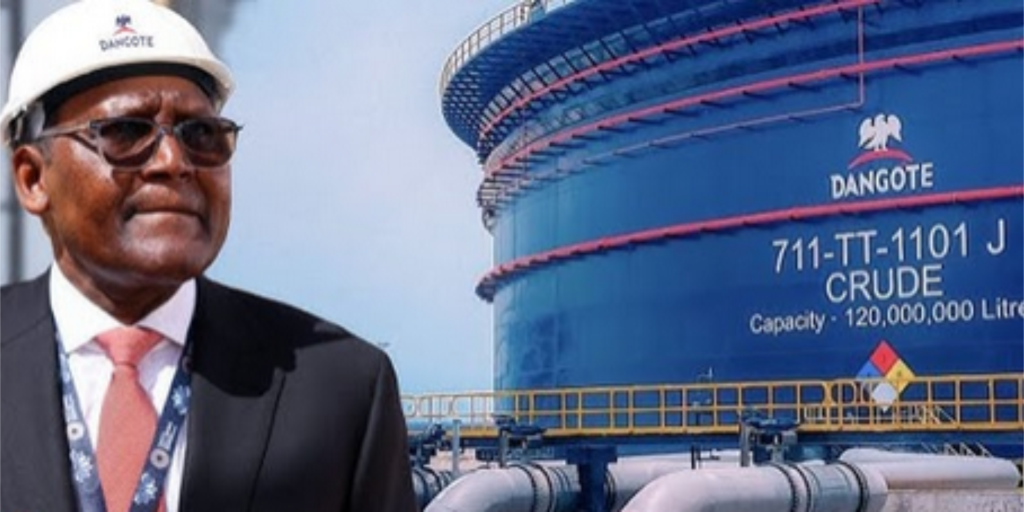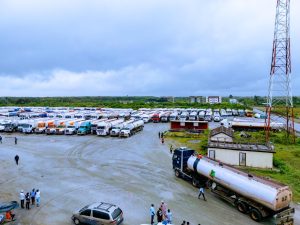Dangote Refinery Resumes Petrol Sales in Naira after Last-Minute Government Intervention

Lagos-Nigeria: Nigeria’s largest industrial project, the Dangote Petroleum Refinery and Petrochemicals has resumed selling petrol in naira after an unexpected suspension that sent ripples through the country’s energy and financial sectors. The turnaround followed a swift intervention by the government-backed Naira-for-Crude Technical Committee, underscoring the fragile balance between private enterprise and state policy in Africa’s largest economy.
![]()
The announcement came in a memo to fuel marketers on Saturday, reversing an earlier notice that petrol sales in the local currency would be halted indefinitely from September 28, 2025. “Following the intervention of the Naira-for-Crude Technical Committee Chairman, we are pleased to inform you of the resumption of PMS sales in naira commencing immediately,” the refinery stated.
For weeks, concerns had been mounting over how the refinery would reconcile its dollar-heavy crude supply arrangements with the government’s push to keep fuel affordable for local buyers. On Friday, the company had warned that its naira allocation for crude purchases was “exhausted,” forcing it to pivot to foreign exchange transactions.
The government’s last-minute mediation avoided what could have been a political and social storm. With fuel prices already straining household incomes, the possibility of marketers buying petrol solely in dollars risked igniting fresh public anger. By Saturday morning, marketers were once again queuing orders in naira.
An Abuja-based energy analyst said “This was not just about currency policy. It was about social stability. The government had to intervene because fuel pricing touches every Nigerian family.”
The refinery’s resumption of naira sales comes on the heels of a sweeping internal restructuring that reportedly led to the dismissal of hundreds of Nigerian staff. Families in Lagos and Ogun states, where many refinery workers live, have been grappling with sudden job losses. A stark reminder that mega-projects carry human costs even as they promise national gains.
“I gave six years of my life to this project, and overnight, I was asked to leave,” said a former engineer who requested anonymity. “Now I have children’s school fees to pay, and I don’t know where to start.”
Labour unions have begun raising concerns, warning that the cuts could erode morale and productivity at a facility often described as “Nigeria’s last great industrial gamble.”
At the centre of it all is Aliko Dangote, Africa’s richest man, who has called the refinery his “biggest risk”, a $19 billion bet that Nigeria can finally wean itself off fuel imports despite decades of failed government-owned refineries.

Though Dangote has not personally commented on the latest crisis, his long-held argument resonates: the refinery was built not only to serve markets but also to secure Nigeria’s energy independence. The recent disruptions, both in labour and currency policy, highlight just how precarious that ambition remains.
The refinery’s reliance on government-backed naira-for-crude allocations illustrates the tightrope Nigeria walks. On one side is the need to attract private capital and enforce market discipline; on the other, the political imperative to shield families from the volatility of global oil prices and foreign exchange swings.
Marketers welcomed the resumption of naira sales, but many remain cautious. “We are relieved, but this is temporary,” one Lagos-based marketer said. “The bigger question is: how sustainable is this model?”
To the ordinary Nigerians, the refinery’s troubles go beyond boardrooms and government memos. Petrol pricing directly affects transport fares, food costs, and household budgets. Each shift in policy translates into a ripple effect across family kitchens and street markets.
“This refinery is not just an industrial plant; it’s a national lifeline,” said Dr. Ifeoma Okonkwo, a sociologist at the University of Lagos. “Its successes and failures are lived daily by millions of families.”
As Nigeria pushes to strengthen domestic refining capacity, the Dangote refinery stands as both a beacon of hope and a lightning rod for criticism. The latest episode, partly corporate drama, political intervention and human story, captures the complexity of building self-sufficiency in a nation where energy, politics, and family life are inseparably intertwined.
At the moment, petrol flows again in naira. But the bigger test lies in whether the refinery and Nigeria itself can reconcile the competing demands of market economics, labour realities and social expectations.






